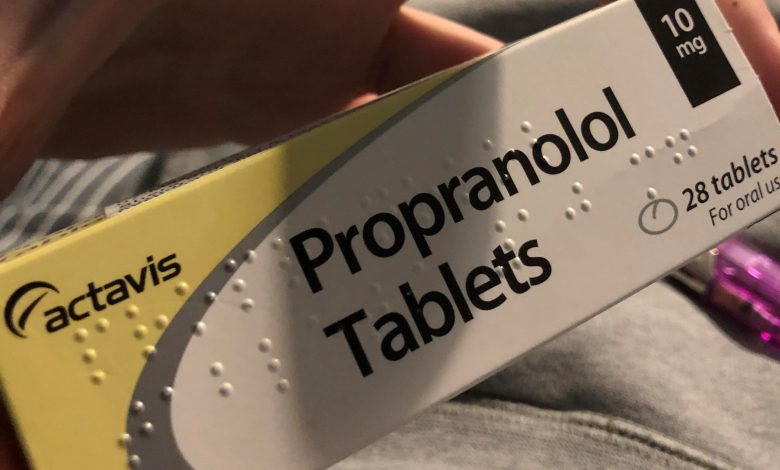Will I Feel Normal Again After Getting Off Beta Blockers?

What are beta-blockers?
Beta-blockers are a class of medication used to block the effects of stress hormones such as adrenaline on the heart. They’re often prescribed for irregular heartbeat, high blood pressure, and after heart attacks.
Less commonly, beta-blockers may be used to treat:
• glaucoma
• migraine
• anxiety disorders
• hyperthyroidism
• tremors
Doctors typically turn to beta-blockers for high blood pressure when other medications, such as diuretics, aren’t working or have too many side effects.
Beta-blockers may be used with other blood pressure-lowering medications, including ACE inhibitors and calcium channel blockers.
Beta-blockers have been shown to have some health benefits outside of helping the heart. For example, they protect bones by preventing the kidneys from excreting calcium into urine, and block stress hormones that could otherwise cause bone thinning over time.
How they work
Doctors mainly prescribe beta-blockers to manage cardiovascular symptoms, such as angina and high blood pressure. Beta-blockers work by blocking the action of certain hormones in the nervous system, such as adrenaline. By doing this, they help prevent the activation of the “fight-or-flight” stress response.
Adrenaline and noradrenaline are hormones that prepare the muscles in the body for exertion. This is a crucial part of responding to danger. If the body releases high levels of adrenaline, a person may experience a rapid heartbeat, high blood pressure, excessive sweating, anxiety, and heart palpitations.
Blocking the release of these hormones lowers stress on the heart and reduces the force of the contractions of the heart muscle. In turn, it also takes pressure off the blood vessels in the heart, the brain, and the rest of the body.
Beta-blockers also obstruct the production of angiotensin II, which is a hormone that the kidneys produce. This relaxes and widens the blood vessels, easing the flow of blood through them.
Beta-blockers are usually prescribed in pill form to be taken orally. The medication works relatively quickly, reaching peak levels in as quickly as one hour. Once it’s in your system, the calming effects of a low dose of a beta-blocker lasts for a few hours.
Examples of beta blockers
Some beta-blockers mainly affect the heart, while others affect both the heart and blood vessels. Your doctor will choose which beta-blocker is best for you based on your health conditions.
Examples of beta-blockers taken by mouth include:
• Acebutolol
• Atenolol (Tenormin)
• Bisoprolol (Zebeta)
• Metoprolol (Lopressor, Toprol XL)
• Nadolol (Corgard)
• Nebivolol (Bystolic)
• Propranolol (Inderal, InnoPran XL)
How beta blockers affect the body
Bradycardia and hypotension are two adverse effects that may commonly occur. Fatigue, dizziness, nausea, and constipation are also widely reported. Some patients report sexual dysfunction and erectile dysfunction. Less commonly, bronchospasm presents in patients on beta-blockers.
Long-term side effects of beta-blockers may include disorientation, short-term memory loss, emotional laibility (rapid, extreme changes in mood), inability to concentrate or think clearly, and decreased performance on neuropsychological tests used to measure a psychological function.
Beta-blockers generally aren’t used in people with asthma because of concerns that the medication may trigger severe asthma attacks.
Can you come off beta-blockers?
Yes, but do not go off a beta-blocker suddenly without consulting your doctor. If you need to stop taking beta-blockers, your doctor will tell you how to reduce your dose gradually and may suggest you switch to a different beta-blocker or another type of medicine. Always follow the instructions your doctor or pharmacist gives you about when to take your medicines.
This is important because when you take a beta-blocker regularly, your body becomes used to it. Stopping it suddenly could cause problems such as palpitations, a recurrence of angina pain, or a rise in blood pressure.
Abrupt discontinuation of beta-blockers also increases your likelihood of experiencing a heart attack and even death in part of the heart muscle, a condition called myocardial infarction.
Feeling Normal Again After Getting Off Beta Blockers
When you start taking beta-blockers, your symptoms may become slightly worse for about two to three weeks as your heart adjusts to them. You might feel more tired or dizzy. That’s normal. However, you’ll need to check your blood pressure and heart rate to make sure they don’t drop too low.
However, if you stop taking beta-blockers, it will take some time for the drug to completely get out of your body and the side effects can last for up to 1 week depending on the drug. When the drug is completely eliminated from your body, side effects such as feeling tired, dizziness, cold fingers or toes, difficulties sleeping or nightmares will gradually cease and you will begin to feel normal again.
In people who have diabetes, beta-blockers may block signs of low blood sugar, such as rapid heartbeat. It’s important to check your blood sugar regularly if you have diabetes and you’re taking a beta-blocker.
Beta-blockers can also affect cholesterol and triglyceride levels. They can cause a slight rise in triglycerides, a type of fat in the blood, and a modest decrease in good cholesterol, or high-density lipoprotein (HDL) cholesterol. These changes often are temporary.





